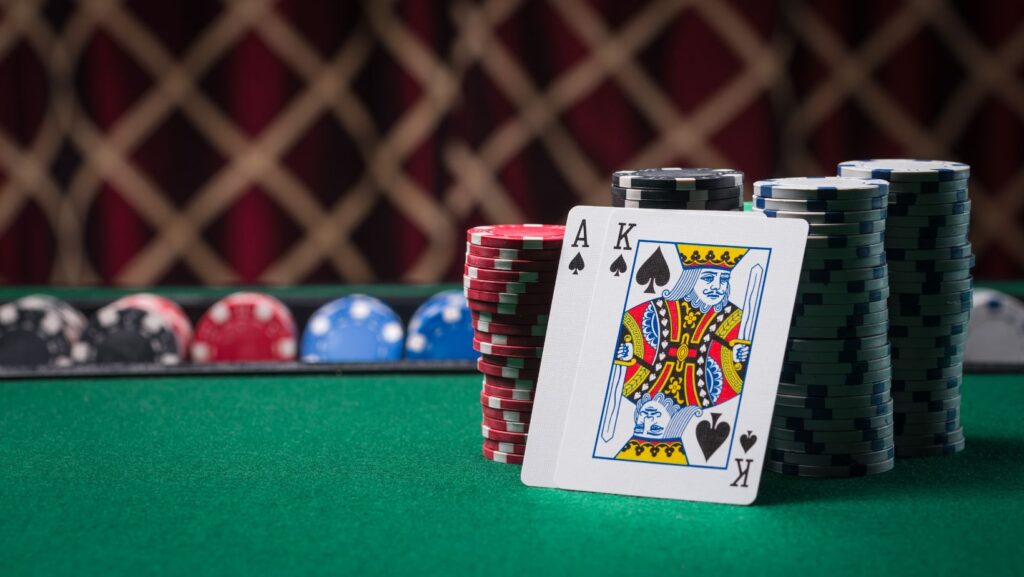I used to walk into casinos thinking I was some kind of investment genius. Had spreadsheets, “strategies,” the whole deal. Convinced myself that with enough research and discipline, I could consistently beat these games. What a joke that turned out to be.
The stress was killing me. Every session felt like a job interview—anything less than walking out with more money than I brought meant I’d somehow failed. Losing $50 felt personal, like the casino had insulted my intelligence.
Then one day, sitting in my car after another “failed” session, something clicked. I’d just spent $80 and had three hours of genuine fun, but felt terrible because I hadn’t made a profit. Meanwhile, I’d spent $60 on dinner and a movie the night before without expecting my meal to pay me back.
Finding platforms that support this entertainment mindset makes a huge difference. RichRoyal Casino focuses on the gaming experience itself rather than pushing the “win big” mentality, making it easier to enjoy sessions without the pressure of needing to generate income.
My Movie Theater Breakthrough
Here’s what changed everything: I started thinking about gambling exactly like movie tickets. Drop $25 at the cinema, get two hours of entertainment, walk out happy (assuming the movie didn’t suck). Nobody expects Marvel to hand them $30 on the way out.
So why was I expecting slot machines to pay me back?
I tested this mindset for three months. Brought $100 to the casino—not as an “investment,” but as entertainment money I’d already mentally spent. Like buying concert tickets.
The difference was immediate: No more stress about being “down” $40. No desperate attempts to “get even” before leaving. Just pure focus on whether I was having a good time.
Why Treating It Like Investment Failed Miserably

The investment approach created impossible pressure. Even the best casino games have house edges—they’re literally designed to make money from players over time. Expecting consistent profits from activities where the math works against you is setting yourself up for constant frustration.
I kept detailed records during my “serious gambler” phase. Six months of treating every session like it should be profitable. Result? Stressed out of my mind and down $2,100 overall. Got so focused on results that I forgot to enjoy the actual games.
Reality check: The house edge doesn’t disappear because you studied basic strategy or found some betting pattern online. You’re paying for entertainment, not buying a guaranteed return.
How I Budget for Fun Now
My gambling money comes from the same place as restaurant meals and streaming subscriptions—discretionary income after bills are covered. Makes it real simple: if I want to gamble more this month, I eat out less. If I splurge on a weekend trip, there’s less casino money.
This keeps everything in perspective. Gambling becomes one entertainment choice among many, not some separate category where different rules apply.
Quick games need extra careful budgeting because the money disappears fast. Games like aviator game Australia can be incredibly entertaining but require strict spending limits since the excitement can burn through your entertainment budget in minutes.
My rule: Never gamble money I need for anything else. Sounds obvious, but I had to learn this the hard way.
What “Winning” Actually Means Now
I stopped tracking profit and loss completely. Now I measure whether a session was worth the entertainment dollar I spent.
Best session last month? Lost $75 but spent four hours playing blackjack with a hilarious dealer and some friendly players from Australia. Had an absolute blast. Totally worth the entertainment cost.
Worst session? Won $140 but felt bored and anxious the entire time. Left feeling unsatisfied despite the profit. Money doesn’t equal fun—took me way too long to figure that out.
Personal metric: If I enjoyed myself for at least 90 minutes per $50 spent, the session was successful. Doesn’t matter what happened to the money.
The Social Side I’d Been Ignoring
When I was focused on “winning,” other people at the tables felt like distractions. Dealers were obstacles to my serious business. Other players were competition or noise.
What an idiot I was.
Now the social aspect is half the entertainment value. Celebrating when someone hits a jackpot, chatting with dealers during slow moments, sharing war stories with other players. This stuff is fun—and it’s part of what I’m paying for.
When to Walk Away
Simple rule now: when it stops being fun, I leave. Doesn’t matter if I’m up, down, or exactly even.
Sometimes I walk away while winning because I’m getting tired or the crowd changed. Sometimes I stay after losing money because I’m genuinely enjoying the games and atmosphere. The financial result isn’t what determines when the entertainment ends.
Warning sign: If I catch myself thinking “I need to win back that $60,” it’s time to go immediately. That’s not entertainment thinking anymore.
The Bottom Line
This mindset shift didn’t make me money, but it made gambling enjoyable again. No more walking to the car feeling like a failure. No more lying awake calculating losses. Just good times that sometimes happen to pay for themselves.
Gambling can be great entertainment if you treat it like entertainment. The moment you start expecting it to solve financial problems or generate income, you’ve turned fun into stress. Not worth it.
Budget from your fun money, not your investment account. Expect nothing back except a good time. Everything else is just a bonus.


More Stories
Simple Habits That Help You Feel More in Control of Money
Orion Stars on BitPlay: Payment Options for Modern Players
Vegas 7 Games Casino: Features, Perks, And How To Play There In 2026